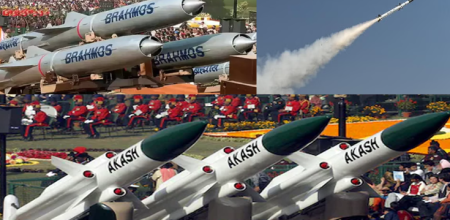Triple Bomb Blasts Rock Pakistan & Al-Qaeda Declares Jihad Against India
May 8, 2025 – Pakistan was rocked by three deadly bomb blasts today, adding more chaos to an already tense situation after India’s recent Operation Sindhoor. To make matters worse, Al-Qaeda officially announced a Jihad (holy war) against India following the Indian military strikes.
Let’s look at what happened, who’s behind it, and what this means for India and the region.
Where Did the Blasts Happen?
According to reports from Pakistan:
- Lahore – A powerful explosion hit a religious school in the city’s crowded Anarkali area.
- Bahawalpur – A blast occurred in a warehouse suspected to store weapons and explosives.
- Muzaffarabad (PoK) – An explosion targeted a compound previously used as a militant camp.
The blasts killed at least 35 people and injured over 65 others. Many of the injured are in critical condition. Emergency teams rushed victims to hospitals, while security forces sealed off the affected areas.
Eyewitnesses described scenes of panic, collapsed buildings, and people running in fear after the loud explosions.
What Type of Bombs Were Used?
Security agencies in Pakistan believe the blasts were caused by Improvised Explosive Devices (IEDs). These are bombs made with common materials but rigged to cause maximum damage.
Experts say the bombs were pre-planted and triggered remotely or timed. Their goal seems to be to create fear and instability, especially after India’s military action.
Who Is Behind the Blasts?
No group has formally claimed responsibility yet, but Pakistani officials suspect internal militant factions or rival terror groups might be involved.
However, security experts point out that the blasts came just hours after Al-Qaeda declared Jihad against India, blaming India for “attacks on Muslim lands” after Operation Sindhoor.
There is speculation that Al-Qaeda or groups aligned with it could be involved to send a message — both to Pakistan’s leadership and to the world — that they are still powerful despite India’s strikes.
Al-Qaeda’s Declaration of Jihad
In a statement released online today, Al-Qaeda called for Jihad against India, accusing India of launching an “attack on Muslims” and “destroying Mujahideen bases.” The group urged its followers across South Asia to rise up and carry out attacks.
This marks a dangerous escalation, as it signals a call for global jihadist networks to target India beyond just local Pakistan-based groups like LeT or JeM.
Indian security agencies have immediately increased alert levels across Jammu & Kashmir, Punjab, Delhi, and other sensitive locations.
Connection to Operation Sindhoor
India’s Operation Sindhoor, carried out yesterday, targeted nine terror camps and logistic hubs linked to Jaish-e-Mohammed, Lashkar-e-Taiba, and Hizbul Mujahideen across Pakistan and Pakistan-occupied Kashmir.
The Indian government described the operation as a “pre-emptive strike” to destroy terrorist infrastructure that planned further attacks in India.
Pakistan denied hosting terror camps and accused India of violating its sovereignty. However, satellite images reportedly confirmed the destruction of militant-linked facilities.
Today’s bomb blasts may be a retaliatory strike or internal fight among militants, as India’s precision strikes have weakened many terror strongholds.
Why Did This Happen?
There are three possible reasons for these bomb blasts:
- Revenge by terror groups angry over losing their bases to India’s strikes.
- Power struggle among rival militant factions fighting for control and resources.
- A message to Pakistan’s army and government for failing to protect militant assets.
At the same time, these attacks show Pakistan’s struggle to control its own militant networks.
Casualties and Emergency Response
As of now:
- 35 confirmed dead
- Over 65 injured
- Many with critical injuries under treatment in hospitals in Lahore, Bahawalpur, and Muzaffarabad
- Pakistan declared a security emergency nationwide
- Army troops and paramilitary deployed to sensitive areas
- Police checkpoints and searches intensified
Pakistani authorities have launched an investigation and vowed to punish the attackers, calling them “enemies of Pakistan.”
International Reactions
Countries around the world have expressed concern:
- The United Nations has called for restraint and peaceful dialogue.
- The US and EU have urged both India and Pakistan to avoid escalation.
- China, Turkey, and Azerbaijan have expressed support for Pakistan’s sovereignty but called for peace.
The global community fears the situation could spiral into a larger regional conflict if not handled carefully.
What Does This Mean for India?
With Al-Qaeda officially declaring Jihad against India, Indian intelligence and defense agencies have put security on highest alert.
Key steps being taken in India:
- Increased patrols at borders and airports
- Random checks in major cities
- Security tightened at temples, markets, railway stations, and public events
- Cyber monitoring of jihadist communication channels
Defense sources say no further strikes are planned for now, but India remains ready to respond to any provocation.
Final Thoughts
The triple bomb blasts in Pakistan today mark a serious and dangerous turn in South Asia’s ongoing tensions. With Al-Qaeda entering the picture, the threat is no longer limited to Pakistan-based groups — it could become a wider jihadist movement against India.
Pakistan faces deep internal security problems, as militant groups it once supported now operate beyond its control. For India, vigilance is key as cross-border terror threats could intensify.
The world is watching closely, urging both nations to avoid sliding into full-scale conflict.
In this volatile moment, diplomacy and strong internal security will decide whether peace or more violence follows.
Stay tuned to nishani.in for more updates as the situation develops.



